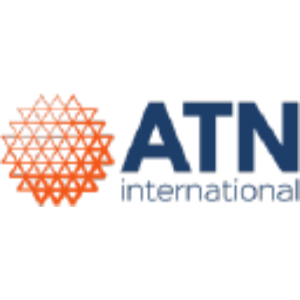Geoverse Brings Power of LTE/5G Private Networks to the City of Tucson
Geoverse, a private cellular network operator, today announced it is the managed service partner for the City of Tucson’s Citizens Broadband Radio Network (CBRS) network being rolled out across the city. The municipal network will enable remote learning and multiple smart city applications in the first phase and new use cases and applications in follow-on phases. The city’s private network is one of the largest municipal cellular deployments rolled out so far in the U.S.
The city has deployed the Geoverse GeoCore Evolved Packet Core (EPC) as the critical control element to manage the CBRS radio network infrastructure from JMA Wireless, the Spectrum Access Service (SAS) from Google, and the many user devices. Mobile devices and end points will be populated with a Geoverse SIM card, enabling them to securely connect to the private network and utilize capabilities such as roaming if they travel off-net.
With the increasing requirement for remote learning, multiple school districts across Tucson faced an all too familiar problem; many households did not have the resources to connect their school-age children. With limited resources and budgets, these school districts approached the city’s IT department to see how it could help address this digital divide.
Collin Boyce, the City of Tucson’s CIO, embraced the challenge and quickly developed a strategic plan that started with a school and city-county partnership. Local municipal assets like city fiber and building rooftops and towers, combined with federal grant money, resulted in a viable plan to solve the student connectivity issue near-term, while also creating a network that could benefit the community elsewhere long-term.
A Wi-Fi approach was considered, but the required equipment, installation resources, and related costs to connect the 31 neighborhoods, five school districts, and almost 100,000 students proved problematic. Instead, the city evaluated LTE and CBRS, identified key advantages they offer, such as signal reach, performance, proven security, and seamless mobility, and ultimately that became the foundation for the municipal solution.
“The resulting CBRS infrastructure footprint and related deployment resources required were significantly much more manageable and therefore more cost-effective, which was significant in understanding the tight schedule and limited resources we were managing against,” Boyce said.
The municipal network offers high-performance wireless connectivity with download speeds of 50 Mbps. In addition, the GeoCore Service platform allows for network slicing across the cellular network, resulting in multiple virtual networks that can each be dedicated to specific functions to help better manage city infrastructure domains.
Use cases include connecting the city’s network of traffic lights, monitoring and managing its critical water systems, serving city parks and recreational spaces with public Wi-Fi, and connecting first responders. It will also be the platform to offer its city staff low-cost, high-performance internet service.
“Once we became more familiar with all the capabilities of LTE and CBRS, it became increasingly clear that Geoverse was the right partner to lead and manage the delivery of this technology for our community network,” Boyce said.
“This is a major deployment both in terms of its coverage area and in its support of use cases, underscoring again the value of what these highly capable networks can now do,” said Rod Nelson, Geoverse CEO. “We’re pleased to partner with the City of Tucson on such a critical effort to keep their communities connected and their schools open. This is a model other cities are closely watching.”
About Geoverse
Geoverse is a licensed mobile operator that provides turnkey connectivity solutions for enterprises, property owners, and communities. The company’s private 5G/LTE cellular network offering—based on citizens band radio network (CBRS) and licensed spectrum—interconnects with major mobile operators, delivering a secure, flexible solution enabling value-added applications and high-performance coverage for users and devices. Geoverse, the largest Neutral Host operator in the US, is a subsidiary of ATN International (NASDAQ: ATNI), a company with more than 30 years of experience building and operating cellular solutions for enterprises, carriers, and consumers.
View source version on businesswire.com: https://www.businesswire.com/news/home/20210324005344/en/







